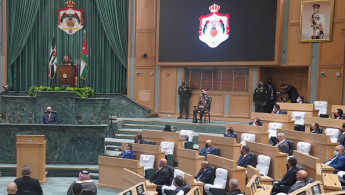Controversy erupts over ‘western-backed’ children rights law in Jordan
Controversy has erupted in Jordan over a proposed child rights bill, with advocates saying it provides necessary legal protections and detractors claiming it is against local values and customs.
"The Law for Children's Rights" was introduced into the Jordanian parliament in July after decades of advocacy by local rights groups. The first draft of the bill appeared in 1998 but ultimately was not passed.
The bill codifies a host of protections for children, including the right to education, the ability for teachers and other responsible adults to report abuse and health coverage for all children in Jordan.
"The law grants rights to children living in Jordan, such as the right to free primary and emergency health care, the right to legal aid, protection from economic exploitation, compulsory education the right to entertainment, the right to a safe traffic environment and other rights," Omar al-Ajlouni, a legal researcher with Euromonitor, told The New Arab.
Jordan has various protections for children through its constitution and as a signatory to the International Convention on the Rights of the Child but lacks a specific child protection law.
"We discovered a number of socioeconomic issues including school dropouts, child labour, underage marriage, abuse and neglect," Mohammed Miqdadi, the Secretary General of the National Council for Family Affairs (NCFA), said in a workshop promoting the law in June 2021.
Proponents of the law say that it could help implement measures to prevent abuse in Jordan, where 74.6 percent of children experience on form of physical violence, according to a 2019 UNICEF study.
"The constitution recognises general principles … while the laws translate and activate those principles," al-Ajlouni said.
Critics have said that the bill is an attempt by western NGOs to degrade the Jordanian family unit. One Jordanian preacher, Dr Eyad Qunaibi, said in a viral video that the law encourages children to abandon religion and to emigrate from Jordan away from their families.
Qunaibi said that the law is an attempt "to set our societies on the same path of decline that western societies are on," and to teach to Jordanian children escape their religious families and "live in a society of sexual deviants." He also said that the law was an "UN-backed initiative" that would lead children to be taken away from their families and given to a European one.
Detractors of the law shared posts that alleged "for the first time, the number of babies born out of wedlock in Britain exceeds those born in wedlock," and pointed to that as the type of "immorality" that would result from the law of the children.
"A reminder to the groups promoting the Children's Law. Rich western organisations are trying to trying to transfer this to the poor countries… it's a violation of our religion and values," Yasser al-Za'atara, a Palestinian political commentator, said after sharing the British wedlock statistic.
Oraib Rantawi, the head of the al-Quds Center for Political Studies in Amman, said that the backlash against the law was due to concern over "religious and identity issues" by conservative groups.
"There is a belief that improvement of the legislative framework for women and children comes from a western agenda, and is not homegrown. This doesn't differentiate between their expectations of the law and its text," Rantawi said to The New Arab.
"Many good, unprecedented aspects of this law are being ignored by this controversy and selective focus on certain aspects of this law," Rantai added.





 Follow the Middle East's top stories in English at The New Arab on Google News
Follow the Middle East's top stories in English at The New Arab on Google News


